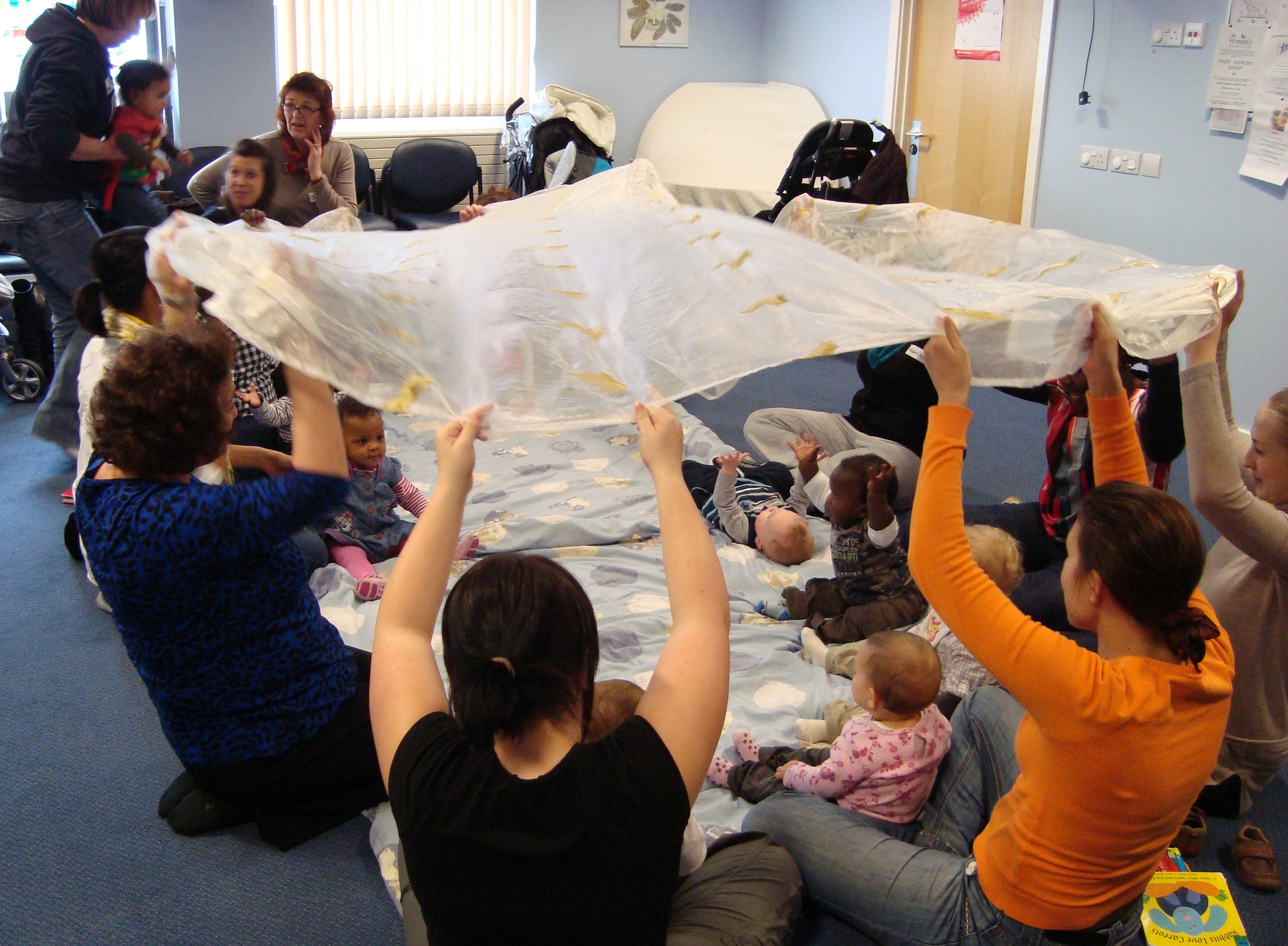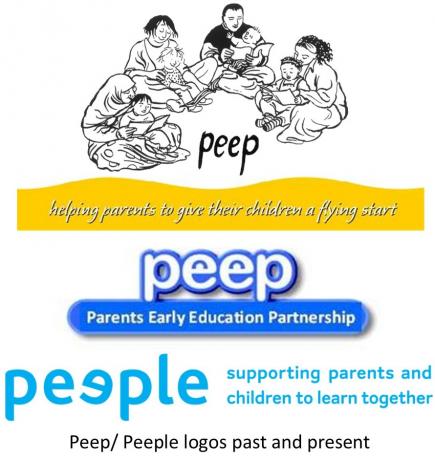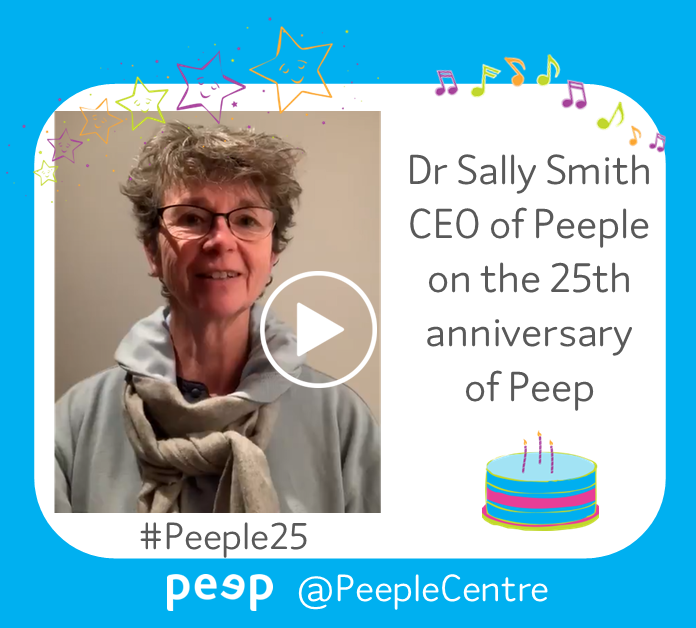history of peep and peeple
The starting point for Peep was a breakfast meeting in the early 1990s between Michael O’Regan and Tim Brighouse, who was then Oxfordshire’s Chief Education Officer. Mike had developed a deep interest in the education of very young children; Tim was nationally renowned and about to become Professor of Education at Keele University.
Mike had one vital question: “Would an early years parent-focused project be a good idea?” Tim’s answer was emphatic and positive.
Mike started to develop a network of professional and academic supporters, and he became a governor of Peers School in Blackbird Leys, Oxford. He began to question the causes of underachievement and disaffection among some pupils, with the support of Bernard Clarke, the head teacher. His trail of questioning led down the age groups from secondary to middle to primary and then to pre-school children. First School teachers expressed their difficulty when children arrived with few social skills and little predisposition to read and learn.
Teresa Smith from Oxford University helped in setting up some mini-research, with two of her colleagues interviewing 19 local mothers. The response was consistent: they all desperately wanted to help their young children have a good start at school but didn’t know what they should do to support children’s early development; nor were they confident in their own abilities.
 So, with backing and advice from experts in early literacy development, education and social policy, Peers Early Education Partnership (PEEP) was established in 1995. It had a particular mission to work with families in the catchment area of Peers School. The project was led by Dr Rosemary Roberts, crucial in shaping what PEEP did, as the first Director. She and music specialist, Dr Alison Street, developed sessions for families which became the basis of the Peep Learning Together programme. Tim Brighouse remained hugely enthusiastic and supportive, becoming a PEEP trustee.
So, with backing and advice from experts in early literacy development, education and social policy, Peers Early Education Partnership (PEEP) was established in 1995. It had a particular mission to work with families in the catchment area of Peers School. The project was led by Dr Rosemary Roberts, crucial in shaping what PEEP did, as the first Director. She and music specialist, Dr Alison Street, developed sessions for families which became the basis of the Peep Learning Together programme. Tim Brighouse remained hugely enthusiastic and supportive, becoming a PEEP trustee.
Additional to their local impact, the early Peep team helped affect national policy. They influenced the Department for Education’s definition of ‘early years’ changing to start at birth instead of age 3 as before, and the Treasury’s creation of Sure Start [later re-named Sure Start Children's Centres], which drew heavily on what they learned from Peep.
Over the following twenty years Peep was grounded in its Oxford base. This included leading one of the trailblazer Sure Start Local Programmes in the Rose Hill and Littlemore part of the local catchment area. The Peep vision was to transform a community by working with the students of the future by supporting their parents as first educators - and to do so from birth.
The project quickly established itself and drew attention; it grew beyond Oxford into a programme of national potential. Practitioner training and accreditation was developed. Since 2000 well over 10,000 practitioners, working in a wide variety of family support, education, health and community organisations, have been trained to deliver Peep programmes. The approach was clear from the outset: 'working with' rather than 'doing to' families. The replacement of ‘Peers’ with ‘Parents’ for the first initial of Peep reflected this change, while reinforcing the fundamental importance of ‘Partnership’.
Peep’s ideas were innovative, pre-dating and contributing to the Sure Start initiative and the now-accepted national focus on early intervention. As Mike O'Regan recalls: "Less helpful at that time were the Charity Commission: when we applied to be a charity, they rejected our charitable Object [aim] ‘to support the education and cognitive development of children from birth’. They said, ‘education of a 0-3-year-old is a contradiction in terms’. So we had to cheat, changing our Object to 3-5-year-olds but then ignoring that constraint as much as we could in what we did. Later, the Charity Commission did allow us to change our Object to ‘from birth’ ". By 2011 Department of Education policy was stating: “Mothers and fathers are their children’s first and most important educators.”
A number of university studies have evaluated the effectiveness of the Peep programme on parents and children, including those who are sometimes considered ‘hard to reach’. The development of qualification units for parents as well as practitioners - known as the Peep Progression Pathway - extended the learning opportunities for parents, often acting as a first step into further learning, volunteering or employment.
With Mike O’Regan still involved and since 2012 under the leadership of Sally Smith and a distinguished board of trustees, Peep’s progress needed one further evolution of its name. To reflect its growing reach and distinguish between the organisation and the programmes, while remaining committed to its origins and humane principles, the organisation became known as Peeple in 2014. This was chosen to reflect that Peeple is a learning enterprise with an inclusive, human approach, focused on parents, carers and young children.
> Read more about the difference between Peep and Peeple.
find out more or book training
tel 01865 397 970
training@peeple.org.uk
> programmes
> training courses
> dates & booking
> sign up to our e-newsletter


